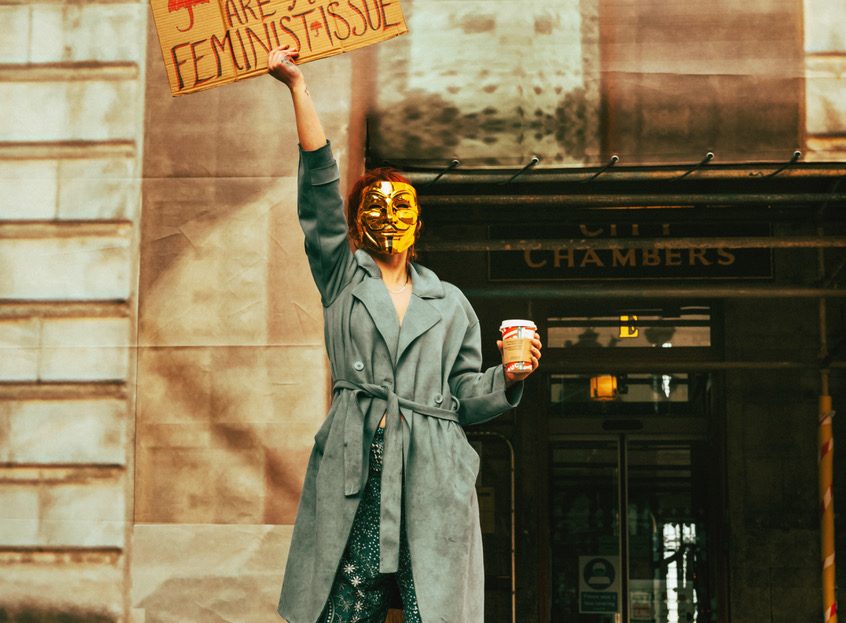On 31 March 2022, the City of Edinburgh Council voted in favour of a ‘nil-cap’ on ‘Sexual Entertainment Venue’ licenses’ (SEVs). The vote moves to shutting down all strip clubs in the city by April 2023 and forbidding any new ones to open. Now, the council is moving to block a judicial review, brought forward by the women who will lose their jobs if the nil cap policy is enforced.
The United Sex Workers (USW), the sex worker’s branch of the United Voices of the World union (UVW), has submitted a court application to be part of a judicial review of the strip club ban by the City of Edinburgh Council (CEC).
“Our voices need to be heard”
The council is trying to block USW from participating, meaning that workers who will be directly impacted by the council’s ban, won’t be able to put their cases across.
Lawyers for USW, the sex workers’ branch of the UVW union, have applied to the Court of Session (Scotland’s Supreme Civil Court) on the union’s behalf to be part of a judicial review of the council’s decision to ban strip clubs. The council has opposed that application and the administration will ask the court not to allow the union to participate.
Suzi, a stripper in Edinburgh and UVW member, stated: “Our voices need to be heard! – If the council is so certain about the lawfulness of the cap, why not let UVW and those of us affected take part in the judicial review?”
Bristol Council recently voted to keep strip clubs open
USW ran a successful two-year campaign in Bristol to keep the strip clubs open in the city, culminating at the end of July with the city’s Council, voting 10-1 against a proposed ban.
Layla, a Bristol-based stripper and UVW member, said: “With a large percentage of unionised workers, we were able to work collectively to mobilise a highly publicised response to a nil cap consultation and shift various councillors’ opinions on the issue. We stand in solidarity with Edinburgh dancers and will work with them to have this horrific ruling overturned.”
USW wants to be able to put forward arguments against the ban including that the nil-cap is indirect gender discrimination. Nil-cap policies may constitute indirect gender discrimination under Section 19 of the Equalities Act 2010 prohibits indirect discrimination against those with a protected characteristic – in this case, women. It may also apply to the right to be free from discrimination under the Human Rights Act (HRA).
The union has raised over £20,000 so far
Edinburgh Council is also calling for the union to be ‘potentially liable’ for the council’s legal costs. UVW has applied for a ‘Protective Expenses Order’ (PEO). A PEO would allow the union to participate in the review without the risk of being found liable for legal expenses which could be over £100,000.
However, CEC has opposed this application, arguing the union should be liable for CEC’s costs if the review is not successful. The union, which represents low-paid workers, has already raised over £20,000 in donations to launch the judicial review.
Danielle Worden, a legal caseworker for UVW, said: “The Council’s opposition to our application to simply just participate in the challenge demonstrates how desperate they are to block the workers most affected from having a voice. We are confident that this desperation is due to the Council knowing the nil-cap is unequivocally discriminatory and unlawful, as demonstrated by Bristol Council’s recent refusal to impose a nil-cap.”
A spokesperson for the City of Edinburgh Council stated: “It’s important to note that SEVs can still apply for a licence and the committee would consider them against the policy agreed.”





